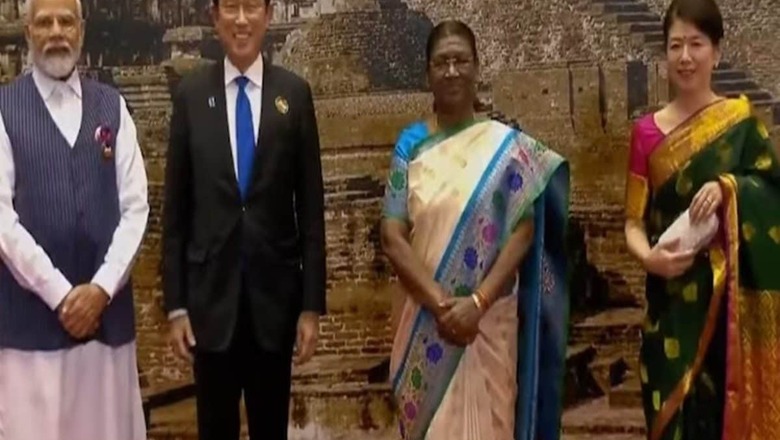
views
India, celebrated for its rich tapestry of traditions, wields its cultural treasures with masterful finesse, molding global perceptions for centuries. Among these treasures, the timeless allure of sarees stands as an iconic embodiment of India’s profound cultural influence; symbolizing India’s enduring soft power. “From the first female Prime Minister, Smt. Indira Gandhi, draped in printed cottons, khadis, temple-bordered weaves, Ikats, and exquisite Kashmiri needlework saris, to the current president, Smt. Droupadi Murmu, proudly showcasing her public wardrobe featuring Mysore silk saris, Sambalpuri Ikats, Gopalpur Tussars and handwoven Santhali iterations hailing from Odisha, the influence of Indian weaves within the political landscape has consistently been a symbol of cultural identity, inclusivity and power. Indian handloom steeped in tradition, reflecting our collective history, folklore, and aspirations, for ages have played a crucial role in the realm of diplomacy,” says Anindita Sardar, Head of Design and Curation, Taneira. Amidst the grandeur of the G20 Summit, the six yards, in all its myriad forms stood as a testament to the enduring legacy and rich weaving traditions of the nation.
The timeless allure of Chanderi Sarees draped by Ms Ritu Banga and Ms Akshata Murthy as well as the resplendent Chanderi Sik Saree adorned by Mauritius Prime Minister Kobita epitomize the richness and elegance of the Indian textile. “From splendid golden Kanjeevaram adorned by Ms Bharti Singh, wife of former Chief of Army Staff General VK Singh to the magnificent Ikat saree embraced by Anupriya Patel, the Minister of Commerce and Industry, each saree represented the kaleidoscope of threads of the country’s textile traditions. Yuko Kishida, the wife of Japan’s Prime Minister Fumio Kishida, donned the exquisite Banarasi saree not merely as a fashion statement, but as a heartfelt embrace of India’s storied textile heritage,” adds Sardar.
Epitomizing core principals of slow and eco-conscious fashion, the Indian textile industry, renowned for its exquisite weaves and commitment to sustainability is steadily rising as a formidable global soft power. “The adoption of Indian traditions by world leaders at the G20 summit not only showcase the elegance of India’s textile heritage but also celebrate their distinct identities while sending a potent message of respect for India’s diverse culture, resonating globally and fostering connections that transcend borders. Witnessing the silent eloquence of Indian weaves, each saree became a narrative, each motif a testimony and each textile an emissary. Soft power, as expressed through culture and textiles, is not merely about influence; it is about the artistry of influence—a masterpiece woven from the threads of heritage, diplomacy, and values,” opines Sardar. Whether at the G20 summit or on the international stage, they serve as ambassadors of India’s boundless creative prowess, leaving an enduring impact.


















Comments
0 comment